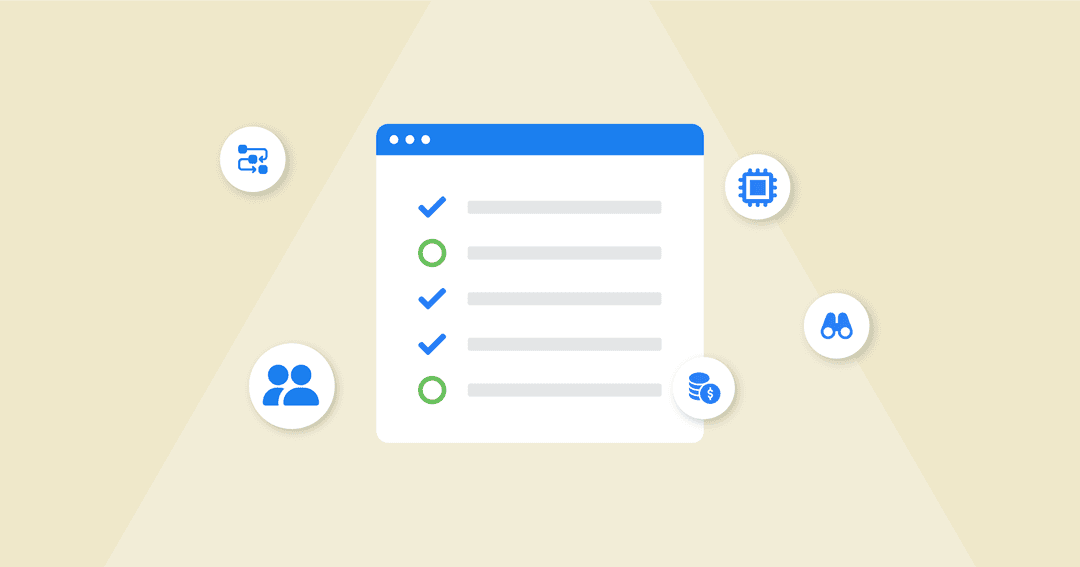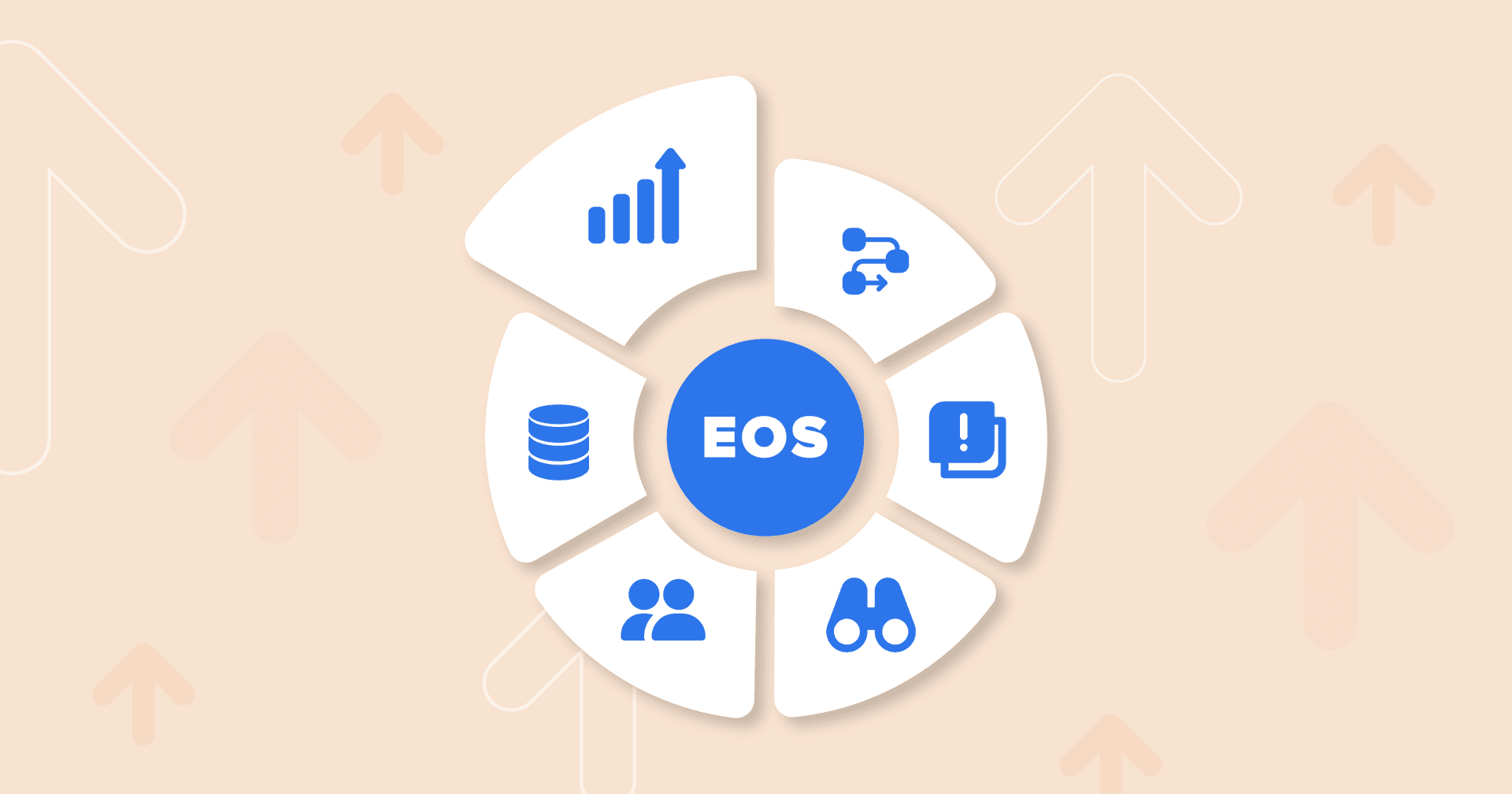Table of Contents
QUICK SUMMARY: As you scale, it’s imperative to ensure that agency operations are running smoothly. Using an operational efficiency checklist will help your agency evaluate your current operations and identify areas for improvement, as well as specific plans to enhance efficiency and streamline workflows. In this article, we take a closer look at how to optimize agency operations.
Your agency is thriving: You're winning bigger clients with more ambitious projects, your teams are at the top of their game, and you're scaling your operations. It’s a dream scenario. But when you put your head on the pillow at night, you can’t help but see the loose threads, and maybe even worry a little bit about whether your current practices are enough to carry you through this exciting phase of growth.
When business is bustling and workloads are flexed, it's not always easy to focus on the processes and systems supporting your workforce. Yet your agency's operations management is the key to your success in these exciting and pivotal moments.
Keep reading to learn how optimizing your agency operations to scale will help alleviate some of the bumps along the way, and ultimately deliver you to your targets faster, and with fewer headaches.
When To Assess Your Agency’s Operations
Though operations assessments tend to be conducted mainly during times of growth, the truth is that agency leaders should be evaluating their operations regularly. The rapid pace of change in any modern business calls for agility in operations management, but this is all the more true for agencies balancing multiple clients, projects, and priorities, all while staying on top of their expertise.
Some factors to consider when deciding on a cadence for assessing your agency's operations include:
How long you've been operating (and how smoothly).
The scale of growth of your agency, especially if you're growing quickly.
Whether there have been any major changes recently (in the market, your company, or with clients).
If you've added in new technology or processes.
As things adjust, certain processes that once worked may no longer be a fit. It's important to remain agile not just with project management and resource management, but also with how your agency functions all around. A proactive approach to agency management is the best way to get ahead of any issues that might arise as your team, priorities, clients, or tech outgrows existing operations.
Focus on improving efficiencies. I still see a number of agencies manually processing reports. I've been there and done that, and it's a complete waste of valuable resources.
Brad Russell, Founder, Digital Hitmen
Why Should an Agency Reevaluate Their Operations?
There's no way around it: Marketing agency operations management takes time and dedicated effort, and often this means allocating resources and potentially billable hours towards your company's internal procedures.
Understandably, this is why operations management frequently falls to the bottom of the priority list. After all, your team is focused on meeting client expectations, hitting key milestones, effective task management, and ensuring smooth client management.
It's important to remember that your agency operations are what's keeping all of this afloat. Without clear and consistent processes in place, agencies struggle to achieve their goals. Potential consequences of not tending to your agency operations include:
Productivity Challenges: Team members may be wasting time trying to access information or arrange their own project management process instead of getting meaningful work done.
Quality Assurance Issues: Without standards for quality control, your team's deliverables risk being inconsistent, off-brand, and misaligned with client expectations.
Client Dissatisfaction: Internal inefficiencies or disorganization might lead to missed deadlines, lackluster results, or poor communication, and client relationships could take a hit.
Team Conflict: Misaligned processes and unclear responsibilities often lead to friction among team members, impacting their ability to collaborate and take ownership of their work.
These are serious risks that directly impact your agency's bottom line. Too often, agency owners are only sprung to action once these symptoms start cropping up—but a proactive approach to operations management will keep you ahead of the fallout.
5 Key Components of Effective Agency Operations
So, what do effective agency operations look like in practice? Essentially, strong operations management at an agency means having the systems, processes, and tools in place to support your team in doing their best work. Here are some of the key components that effective agency operations involve:
Project Management
The established processes that help your team with managing projects, including planning, task assignments, and tracking performance. This also includes your agency project management tool, whether you have project managers on staff, and how you set up your project teams.
Resource Management
Similar to project management, resource management is the processes your agency has in place for managing resources. This covers human resources, budgets, and tools. Your agency will likely use a resource management software to conduct these efforts.
Team Management
This function covers how you build and develop your agency teams. This spans from talent acquisition through to performance management and staff retention efforts, but also includes aligning your team around the strategic direction of your agency. People management is a joint effort between human resources, team leaders, and resource and project managers.
Client Relationship Management
This covers the entire client lifecycle, from client acquisition and onboarding to contract management to creating invoices and ensuring customer satisfaction and client retention. Your sales team will likely use CRM software to facilitate client communications, manage client data, and track client touchpoints with your brand.
Standard Operating Procedures (SOPs)
SOPs provide efficiency, consistency, and quality control for various tasks and workflows your agency uses on a day-to-day basis. From how to deliver client work to how you determine an employee's annual salary, there should be a set standard. This ensures every team member understands how to perform their duties effectively and that important decisions are made objectively.
All of these components work together to create an operational structure that supports your agency's growth and success.
Streamline internal processes and workflows to maximize efficiency and minimize delays. Identify bottlenecks or inefficiencies that hinder revenue generation and implement solutions to address them.
Omar Muñoz, Co-Founder, REInvestor SEO
Common Agency Operations Mistakes
Now you understand the importance of effective agency operations, and what they look like, but what are some red flags to look out for in your existing agency operations, and common pitfalls to avoid? Here are a few common operational challenges to be on the lookout for:
Lack of Clear Processes: Without clear processes, team members may not understand their roles and responsibilities, how to carry out specific tasks, and who to go to for what.
Inadequate Communication: Poor internal communication across all levels of the agency is a recipe for misunderstandings, misalignment, and missed opportunities.
Neglecting Technology: Failing to maintain your agency's tech stack and ensure important systems are integrated leads to data discrepancies and trouble with tracking key performance indicators.
Overlooking Employee Development: Your agency's success depends on your team. Failing to invest in talent development often leads to high turnover and decreased morale.
Failing to Iterate: Regularly reviewing your agency operations and finding ways to streamline, optimize, and update them is a key blocker to achieving operational excellence.
Understanding these common challenges helps you improve agency operations by tackling the most counterproductive issues first. Keep the last one top of mind: Marketing agency operations management is an iterative process, and takes time to test new methods and implement new solutions.
How To Optimize Your Agency's Operational Efficiency
Effective agency operations management generally takes a bit of tinkering. You don't necessarily have to overhaul everything all at once–instead, implement incremental changes over time that will eventually amalgamate into improved overall agency operations, and offer some short-term relief in the meantime.
Agencies, at some point, ultimately sell time and expertise. If you can maximize the time of our staff, operational efficiencies create themselves and we can focus better on strategic tasks
Anthony Guilhem, President, Momentumm
Here are some steps to follow in your journey towards smoother, more streamlined agency life:
1. Understand Your Current Operations
This might seem obvious, but very often there are processes and systems in place that you might not know about as an agency leader. As your team grows, project managers and team members will start putting their own practices into place for their day to day operations. So it starts with getting a clear picture of how things are currently functioning.
Because your agency operations encompass various aspects of how your business works, it's important to take a holistic approach and assess the big picture. Rather than narrowing in on one specific element of your agency operations, like managing projects or capacity planning, try to get a complete view of how all of your processes, tools, and systems work together to form your overall agency operations.
Agency Tip: You might examine time tracking data, project management data, and resource management data as a starting point. Another option is to hire an agency operations manager, even on a contract basis, to run a more formal audit across your teams and departments.
2. Ask for Feedback
With a holistic view of your agency's operations, it's essential to gather feedback from your team members and clients. This will help shed light on the bottlenecks, pain points, and inefficiencies people are running into that are impacting their ability to be productive or achieve their goals.
While your team members will offer insights about your internal marketing agency operations, your clients help you understand how your operations impact their experience.
Agency Tip: Feedback surveys are a great way to collect data and insights, both from your staff and from your clients. Your human resources department or an operations manager might also conduct interviews with some of your team members to gain deeper insights. Meanwhile, your customer success or sales team could ask clients for additional feedback.
3. Identify Solutions
Analyze the feedback you've collected to identify trends and common grievances. Where are your agency operations failing or leading to frustrations? Remember that achieving operational excellence takes time, and you won't be able to solve all of your problems at once. So do some analysis to pinpoint what the most impactful changes will be, and start there. Evaluating impact and effort and doing scenario planning are good ways to prioritize your to-do list.
Agency Tip: Try implementing solutions one by one as opposed to completely resetting your agency operations overnight. This will also make it easier to track the impact of each change and adjustment. Remember that effective change management will make all the difference—start small, and then continue to iterate.
4. Standardize and Automate
Effective automations will help streamline everything from your project management to strategic resource planning, reporting, and client relationship management. Before you automate, it's good to create consistency through standardization. Set up standard workflows, processes, and procedures for successful project delivery, contract management, and other key areas of your agency operations. Once that's done, seek out opportunities to automate tasks with technology.
Agency Tip: A good place to start is time tracking the tasks, workflows, and processes that your project teams use the most. For example, are your teams wasting valuable billable hours drawing up client reports? If that's the case, check out AgencyAnalytics' automated reporting solution.
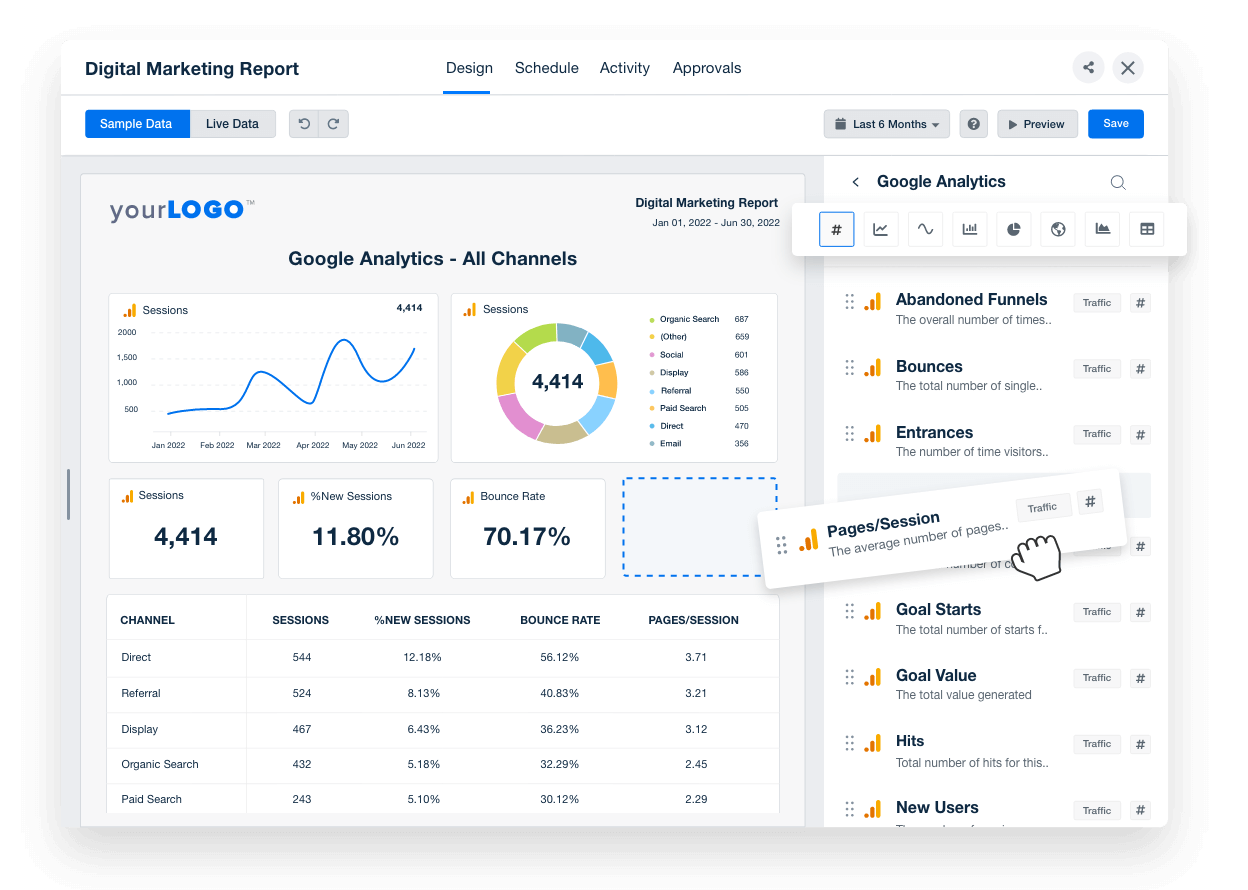
Seamlessly track client success and automate your agency’s reporting process. Create custom white labeled reports and dashboards in just 11 seconds–try AgencyAnalytics free for 14 days.
5. Launch and Maintain
One of the most important parts of successful agency operations management is regularly reviewing the systems, tools, and practices in place. Your agency operations aren't a 'set it and forget it' type of thing. You need to run tests, track their success, and adjust when needed. If you have an agency operations manager or chief operating officer on staff, they will own this process and it will be their primary responsibility.
Agency Tip: Whether or not you have agency operations professionals working on this, it's important for the project to have an owner. Beyond a designated project manager, you also need your leadership team to be on board and actively participating in the transformation of your agency operations management.
Key Areas of Agency Operations To Optimize
Before you launch into trying to improve agency operations, it's important to have a sense of the various aspects that contribute to strong overall operations. You might choose to focus on one specific area, or find the most impactful way to address each one. Either way, these are some key areas of marketing agency operations to evaluate:
Processes, Workflows, and Efficiency
Processes are the backbone of any agency's operations. They encompass workflows, task assignments, and quality assurance measures. Well-defined processes ensure that everyone on the team understands their roles and responsibilities, reducing confusion and delays.
How to improve it: Outlining your existing processes, such as your project management process, is a great place to start. With a clear overview, you'll be able to spot bottlenecks and opportunities for better operational efficiency.
We're an SEO agency that first and foremost prides itself on exceptional results. To achieve these results, we need to spend as much time as possible on executing our SEO strategy. While remaining fully transparent about our results and process, it is critical that we eliminate inefficiencies within the client liaison process. This allows us to achieve our goals for both ourselves and our clients.
Brad Russell, Founder, Digital Hitmen
People Management and Collaboration
Effective team management is crucial for creative agencies. This includes hiring the right talent, fostering a positive work culture, and facilitating collaboration through strategic resource planning and project planning. When people have clarity and alignment, they're equipped to thrive.
How to improve it: Evaluate your people management processes like capacity planning, performance management, and resource allocation practices. Conduct stay interviews to understand what's keeping people motivated and engaged while working at your agency.
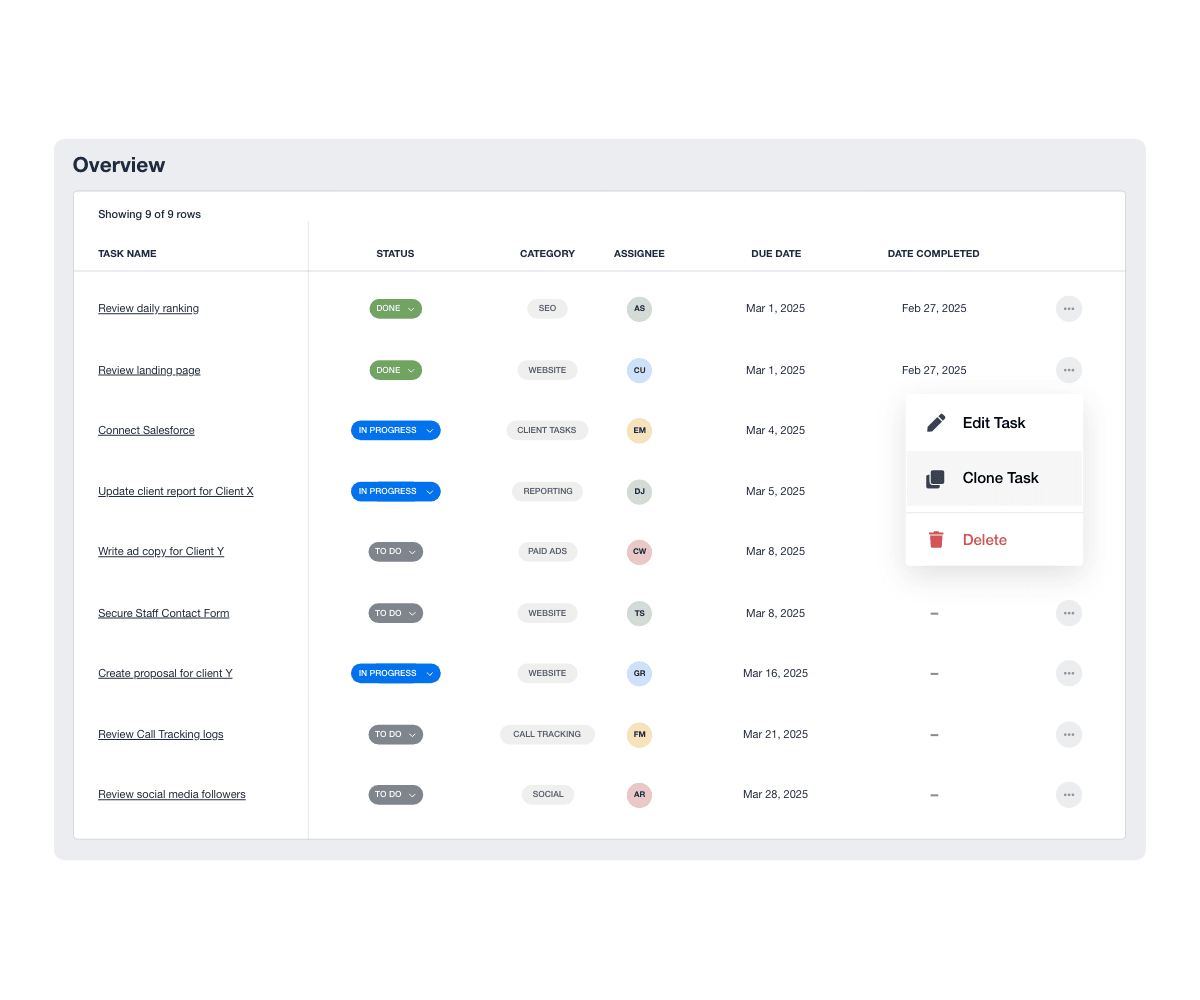
Clearly assign tasks for the entire team, making it easy for every team member to understand their assignments and progress. Try the complete agency management solution from AgencyAnalytics–free for 14 days.
Project Management and Delivery
Effective project management is at the heart of your agency operations. Not only are projects your teams' deliverables, but successful project delivery is paramount to client satisfaction. So making sure everyone's on the same page with project management and timely delivery of services is essential.
How to improve it: A reliable project management software helps you monitor project timelines and keep track of your resource utilization. Find one that meets your team's needs, is easy to implement, and doesn't add extra work just to manage.
Strategic Financial Management
Profitability can't be overlooked, especially in today's competitive market. Your agency's financial management comprises budgeting, expense tracking, and ensuring project profitability. This is a key part of your agency operations management because it interacts with all the other areas.
How to improve it: Detailed budgets for each project allow you to track expenses closely. Implement an invoicing system to ensure timely payments from clients and analyze financial reports regularly to identify trends and improve profitability.
Vision and Long-Term Planning
Planning is essential for agency operations, guiding the agency's strategic direction and aligning teams around a shared mission and vision. Long-term planning for your agency includes scenario planning, setting goals, developing timelines, and coordinating resources to achieve desired outcomes.
How to improve it: Setting goals is one part, but it's also essential to communicate those goals clearly, consistently, and regularly. Town hall meetings and team planning sessions are opportunities to reiterate the collective objectives each team member is contributing to.
Modern Technology and Tools
Technology plays a significant role in agency operations, providing the tools needed to streamline workflows and improve efficiency. Your agency's tech stack will automate repetitive tasks, enhance communication, and provide real-time insights into project progress. Having functional tools like project management software and resource management software will keep your operations running more smoothly.
How to improve it: Beyond the basics, there are modern systems that streamline core tasks like data analysis and client reporting to bring a whole other level of value. AgencyAnalytics pulls data from more than 80 marketing platform integrations for standardized, automated client reporting.
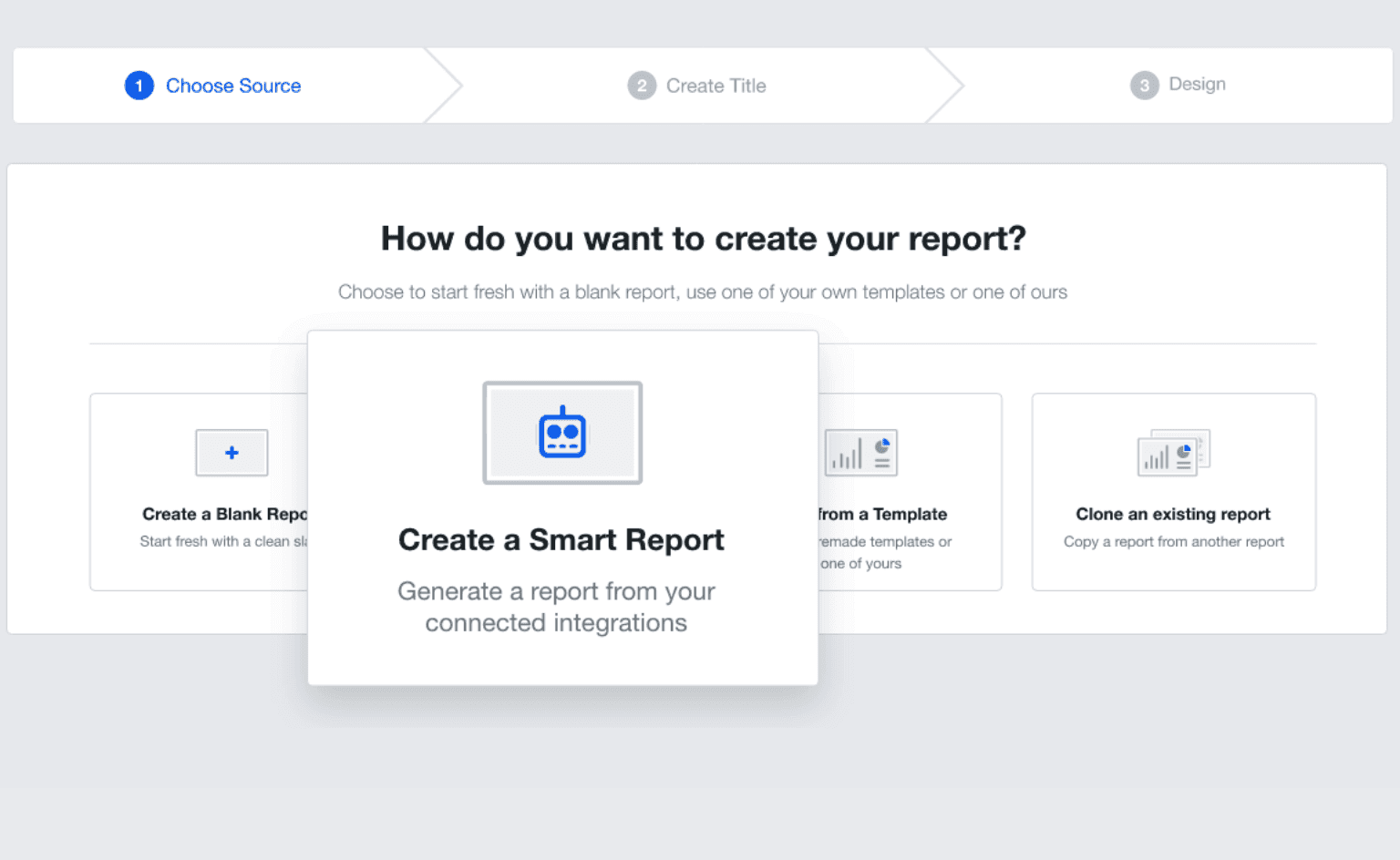
Why waste billable hours each month when you could create custom white labeled client reports in just a few clicks? Learn why more than 7,000 marketing agencies trust AgencyAnalytics to automate their reporting–try it free for 14 days.
Agency Operational Efficiency Checklist
Eager to begin implementing operational efficiencies at your agency? Start with the following items:
Understand Your Agency’s Context |
What are your agency’s current objectives, goals, and strategic directions? Who are your target clients, and how are you managing client acquisition? Consider any recent changes such as rapid growth, layoffs, mergers, etc. |
Identify Symptoms of Operational Inefficiency |
Have you had any issues with client satisfaction or misaligned expectations? Have there been any issues with the quality of outputs from your team? Are your team members struggling with productivity, collaboration, or efficiency? Is morale or engagement down, has there been an increase in interpersonal conflict? |
Audit Your Agency’s Existing Operations |
Ask each team to outline their existing processes and workflows. Create an overview of your existing tech stack and all the tools your teams are using. Conduct surveys, interviews, or other research to understand the operational challenges teams are facing. Be sure to cover the key areas of agency operations: Project Management People Management Processes and Procedures Financial Management Strategic Direction and Alignment Communications Technology and Tools |
Identify and Test Solutions |
Review and analyze the results from your auditing activities. Look for overarching themes and pain points affecting multiple teams. Identify opportunities for improvement and craft a long list of potential solutions. Narrow down your list based on the impact and potential effort of your tactics. Implement solutions incrementally—test with one team, one client, one project, or within a set time frame. Monitor the impact of the solutions you test (avoid implementing multiple changes at once for clearer tracking). Scale solutions when they’re successful. Implement methods to audit operations on an ongoing basis. |
Looking for a straightforward overview of all the key information outlined in this article? Download this checklist to audit and streamline your agency’s operations:
Small Changes Lead to Big Solutions
As you embark on your journey towards improved operations management for your agency, remember that not all changes need to be drastic. Adjusting to new systems, processes, and structures takes time, and you may see increased friction before you see improvements.
This is why taking an incremental approach and running tests before you scale solutions is the key to success. The more small improvements you make over time, the more they will add up to stronger, more resilient overall agency operations.
Looking to improve agency operations today with a smoother client reporting process? Try AgencyAnalytics free for 14-days and instantly streamline your workflows.

Written by
Kyra Evans is the Manager of Content Marketing at AgencyAnalytics. She has over 15 years of experience writing content for SaaS, tech, and finance brands. Her work has been featured by HuffPost and CBC, and she serves an engaged social media readership of over 30,000 community members.
Read more posts by Kyra EvansSee how 7,000+ marketing agencies help clients win
Free 14-day trial. No credit card required.



